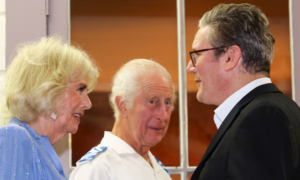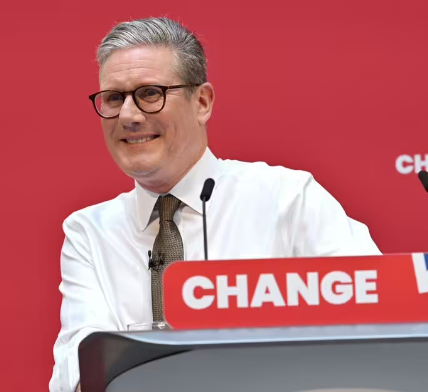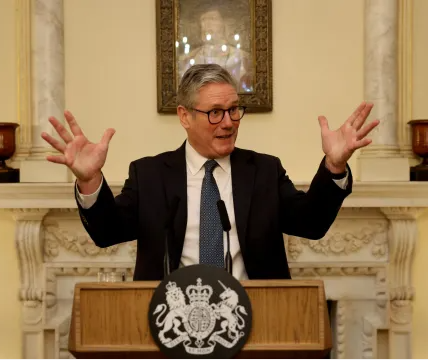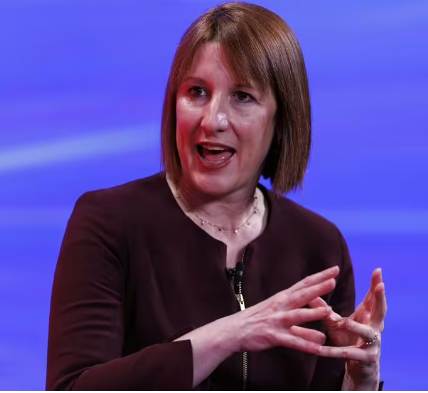‘Time has come’: Commonwealth heads agree to reparatory justice dialogue despite reluctant UK_p
UK government stresses it does not pay reparations and said before Chogm summit that issue was not on agenda

King Charles III and Queen Camilla host a heads of government dinner in Samoa, attended by the British prime minister, Keir Starmer. Photograph: Toby Melville/Rex/Shutterstock
Commonwealth leaders have resolved that “the time has come” for a conversation on reparatory justice despite the UK’s insistence that the issue was not on their agenda.
The language, agreed at the Commonwealth heads of government meeting (Chogm) on Saturday, is a blow to the UK, which wanted to avoid reparatory justice being mentioned.
Keir Starmer told a press conference after the summit that the text “notes calls for discussion and it agrees that this is the time for conversations”. But he stressed that “none of the discussions have been about money. Our position is very, very clear on that.”
The UK government has said it does not pay reparations and insisted that the question was not on the agenda for Chogm before the summit.
However, Commonwealth leaders ultimately defied the UK by including a paragraph on reparatory justice in the summit communique. Starmer downplayed the significance of the section in question. “The slave trade, slave practice, was abhorrent, and it’s very important that we start from there. Abhorrent is the right word,” the prime minister told reporters in Samoa.
“There is … the paragraph in the communique about reparatory justice, which does two things: it notes calls for discussion and it agrees that this is the time for a conversation.
He said the section on reparations was a small part of “quite a long communique” and that the “absolute priority” for Commonwealth countries at the summit had been to discuss resilience to the climate crisis.
The document said: “Heads, noting calls for discussions on reparatory justice with regard to the transatlantic trade in enslaved Africans and chattel enslavement, and recognising the importance of this matter to member states of the Commonwealth, the majority of which share common historical experiences in relation to this abhorrent trade, chattel enslavement, the debilitation and dispossession of Indigenous people, indentureship, colonialism, blackbirding and their enduring effects, agreed that the time has come for a meaningful, truthful and respectful conversation towards forging a common future based on equity.
“Heads further agreed to continue playing an active role in bringing about such inclusive conversations addressing these harms, paying special attention to women and girls, who suffered disproportionately from these appalling tragedies in the history of humanity.”




